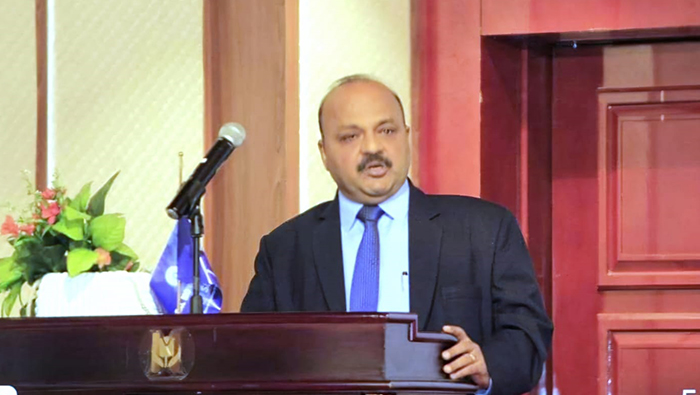
Muscat: US President Trump is expected to announce announce sweeping global tariffs soon. His stance is that if they charge us, we charge them.
Speaking to the Times of Oman, R. Madhusoodanan, a financial expert, said the American President believes that the US is being treated unfairly in global trade, creating an imbalance in tariffs. Emerging Market (EM) economies like India, Brazil, South Africa, Turkey, Indonesia, Thailand, Vietnam, etc, impose higher tariffs on exports from the US than the US levies on imports from these countries.
The potential move applicable to most of the goods imported to the US will adversely impact all emerging market economies like India in the short term. Sectors like Automobiles, IT, Pharma, Electronics, Textiles, Gems and Jewellery, key manufacturing industries, agritech will be the worst affected, he said.
Indian exports to US for the FY 2024-2025 may cross USD 80 billion, and India has always had a comfortable trade surplus with the US. Hence, the relationship with the US is crucial for India.
India currently levies a weighted average rate of close to 10% on US exports, while the US levies an average of 3% on Indian goods. The bilateral discussions are reportedly positive. The US acknowledged India’s move to reduce tariffs on cars, motorcycles in the Union Budget, and also the removal of 6% equalisation levy, or the so called Google tax. In view of the developments, the US may also consider a pause on reciprocal tariffs for a few months.
No doubt, if not deferred, the new rule may disrupt trade flows, particularly the sectors mentioned above. The US is also not spared. For example, their export of dairy products worth more than $8 billion is facing problems as China and Mexico have already imposed retaliatory tariffs on US dairy products.
In short, the Emerging markets (EM) may see this as an opportunity to diversify their trade avenues, reducing tariffs on products and services, and also strengthening domestic manufacturing and services to minimize the impact of reciprocal tariffs, a long-term solution, R. Madhusoodanan said.